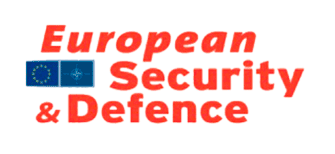Publications
The SCO Samarkand Summit: Dialogue and Cooperation in an Interconnected World  By Shavkat Mirziyoyev, President of the Republic of Uzbekistan
By Shavkat Mirziyoyev, President of the Republic of Uzbekistan
Uzbekistan’s chairmanship in the Shanghai Cooperation Organization (SCO) has fallen on a dynamic period, fraught with various events and trends – the period of the «historical rift», when one era comes to an end and another begins – thus far unpredictable and unknown.
The modern system of international cooperation, based on the universal principles and norms, begins to falter. One of the main reasons for this is a deep crisis of trust at the global level, which, in turn, provokes a geopolitical confrontation and the risk of reviving the bloc thinking stereotypes. This process of mutual alienation complicates the return of the world economy to its former course of development and the restoration of global supply chains.
READ MORE
Publications
Role of Shanghai Cooperation Organisation Goes beyond Managing Russia-China Relations in Central Asia  By Benyamin POGHOSYAN, PhD, Chairman, Center for Political and Economic Strategic Studies
By Benyamin POGHOSYAN, PhD, Chairman, Center for Political and Economic Strategic Studies
As the world comes closer to multi-polarity, the role of such organizations as SCO will grow further. Russia and China will seek to use them as a counterbalance to western dominated international political and economic organizations, such as G7, the EU, the World Bank and IMF. In the present context of emerging great power competition, the SCO started to be viewed less as a tool to manage Russia – China relations in Central Asia, or counter terrorist threats from Afghanistan, and more as a significant grouping of non-western powers in the emerging multipolar world.
The war in Ukraine has given a new impetus to the discussions about the transformation of the global order. Experts, academicians, and politicians have been debating the potential counter-weights of the emerging post-cold war order since the global financial crisis of 2008. There were different opinions about what the new world order could be like. Among the options discussed were a new bipolar world dominated by the US-China rivalry, a multipolar world where key players – the US, China, Russia, India, EU, and perhaps others – will be in a constant fight for influence and prestige, or complete chaos with no rules and no dominant players, opening the prospect of returning humankind back to a geopolitical jungle. READ MORE
Publications
Why is Baku Waging a “War of Words” against Tehran?  By Yeghia TASHJIAN, Beirut-based regional analyst and researcher, columnist, "The Armenian Weekly”
By Yeghia TASHJIAN, Beirut-based regional analyst and researcher, columnist, "The Armenian Weekly”
During a meeting with Russian President Vladimir Putin and Turkish President Recep Tayyip Erdogan in Tehran on July 19, the Iranian Supreme Leader Ali Khamenei warned against blocking the Armenian-Iranian border, stating, “If there is an effort to block the border between Iran and Armenia, the Islamic Republic will oppose it because this border has been a communication route for thousands of years.” After this warning, Turkish and Azerbaijani media started paying more attention to Iranian officials and launched a “war of words.” In response to media provocations and threats toward Armenia launched by Azerbaijan, Iran facilitated the appointment of a Consulate General in Syunik to redraw its “red lines” in the South Caucasus. READ MORE
Publications
Turkey Imposes Obstacles to Nordic Countries’ NATO Aspirations  By Eugene KOGAN, Tbilisi-based defence and security expert
By Eugene KOGAN, Tbilisi-based defence and security expert
Sweden and Finland have long followed a policy of military neutrality so as not to incur Russia’s wrath. However, the unprovoked Russian war against Ukraine has changed the attitude of these countries. Both Sweden and Finland announced their wish to join the North Atlantic Alliance in mid-May. Then, out of the blue, came obstruction from Turkey with the claim that both countries were financing terror and supporting Kurdish “terrorist” groups that Turkey has been trying to eliminate for the last 40 years or so. One of the major handicaps of the North Atlantic Treaty was and still is the omission of information about a NATO country blocking the participation of non-NATO states in NATO activities or the joining of new NATO members into the Alliance. Admission of new NATO members requires the unanimous consent of all members and the subsequent ratification of protocols by their respective parliaments. READ MORE.
1
...
139
140
141
...
1274